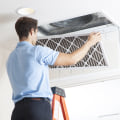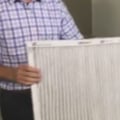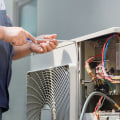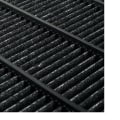Smoke particles are typically 0.3 to 1.0 microns in size, so an air filter with a MERV rating of 11 or higher is needed to effectively remove them. The MERV classification gives us an idea of how filters can filter particles from 0.3 to 10 microns (10-6 m). This size range includes most air pollutants, smoke, dust, cooking oil odor, mold spores, and bacteria.
Merv 8
filters have a high capacity rating and are suitable for light to medium use.They maintain good airflow, provide good filtration and retain a lot of dust. They are great for capturing allergens such as pollen, dust mites, large pet dander, carpet fibers, dog hair, cat hair, and even human hair.
MERV 11
filters are slightly better than MERV 8 filters. They capture additional contaminants in your home, such as mold spores, lung-damaging dust, most bacteria, self-emitting particles, hairspray particles, and some insecticide dust and smoke particles.If there are smokers in the home or people with compromised immune systems, MERV 11 or higher should be chosen. When choosing an air filter for your HVAC system, it may seem like a good idea to buy the filter with the highest MERV rating. However, in most cases, you should use a filter in the range of 5-8.The reason is that filters with a high MERV rating will have the smallest pores for air to pass through which can make it difficult for the HVAC system to push air through the filter and reduce system performance.
MERV 13
air filters are considered the best overall for residential HVAC systems and are used in schools to provide clean learning environments for their students and staff.No value higher than MERV 13 is recommended for residential use as they are highly effective at removing a wider range of particles such as smoke, bacteria and even some viruses. HEPA filters are at the highest MERV level and work best with protection against air pollutants. We recommend MERV 11 filters as our “best air filter” as they eliminate pet dander and most air particles such as mold, smoke and pollen. We do not recommend filters M 12 or higher 13 as they may adversely affect certain HVAC systems by restricting airflow.
HVAC blowers rely on a good supply of air to keep them cool so upgrading a building's air filter to a HEPA is a much more effective step than just a MERV 13 considering the small size of a virus (0.06-0.12 microns). Furnace filters with MERV ratings between 6 and 8 are the cheapest and are considered the minimum of efficiency. If you want to know how effective your air filter is at removing air pollutants, check the filter's MERV rating. Filters with a MERV 6 rating are more affordable and will provide the bare minimum for a home without furry pets.










